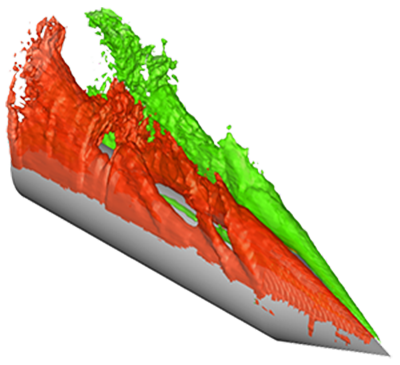Recently, mechanical engineering professors Rajan Kumar, Farrukh Alvi and other researchers at the FAMU-FSU College of Engineering spearheaded a project that could shape our understanding of fluid dynamics as they are now known. The project, titled “A Comprehensive Study of Forebody Vortex Interactions with Control Surfaces of Generic Axisymmetric Configurations,” was approved by the Department of Defense in October and will be managed by the Army Research Office. Nearly $600,000 is allocated for the research, which sees Kumar as its principal investigator.

According to the proposal, “The main objectives of the proposed study are to improve our fundamental understanding of vortex-dominated flows and in particular the nature of forebody vortices and their interactions with control surfaces of a generic axisymmetric configuration over a range of geometric and flow conditions.” Vortices can be defined as masses of whirling fluid or air, found in nature through phenomena such as whirlpools or hurricanes. In the field of fluid dynamics, vortex-dominated flows (which include vortices and their interactions with surfaces that can widely vary in scale) largely remain a mystery, while the need to understand them is as instrumental as ever to the development of modern flight vehicles.
In particular, aircraft or projectile maneuverability is especially susceptible to vortex-dominated flows at high angles of incidence, which can see the ability to achieve tactical advantage during ascent impacted due to flow asymmetry. It’s a challenge that the research team hopes to solve.
According to the group’s proposal, the research methodology will involve a systematic experimental and computational investigation to examine the phenomenon of vortex interactions with control surfaces. The researchers hope this work will result in a better understanding of vortex-dominated flows encountered in many engineering disciplines, especially in the areas of experimental aerodynamics, high-fidelity numerical simulations and flow control.
These FAMU-FSU Engineering faculty are well-known for their work in this space and will use facilities of the Florida Center for Advanced Aero-propulsion and other existing facilities and computational resources at the college.
Results from the study will be detailed in journals, presentations, and disseminated in part through joint efforts with scientists working from other institutions such as those at the Army Research Laboratories.
